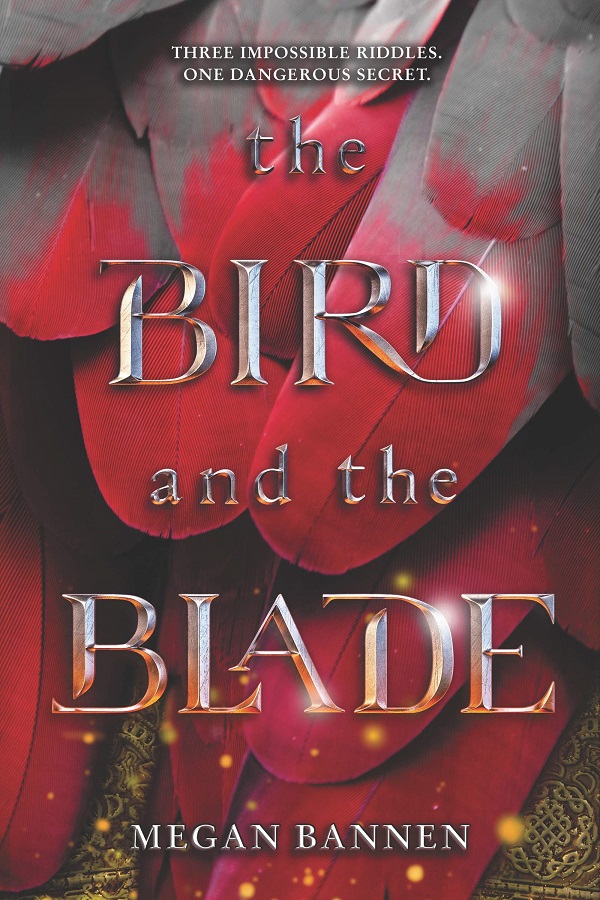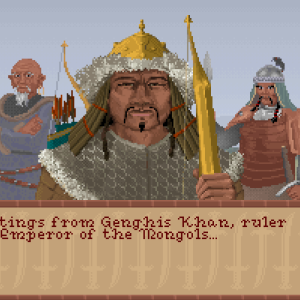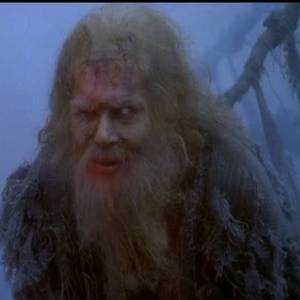
About the Book
-
Author:
- Megan Bannen
- Genre:
- Historical Fiction
Cover Story: Everybody Knows That the Bird is the Word
Drinking Buddy: Pass the Qumiz
Testosterone Estrogen Level: Khan!
Talky Talk: Age of Empires
Bonus Factors: Mongol Empire, Questions Three
Bromance Status: What’s Covered In Red Feathers and Kept Me Up Too Late?
Cover Story: Everybody Knows That the Bird is the Word
We got your bird feathers and your bladey words. So two for two, I guess. They so could have gone for the giant teen face in period costume here, so I’m glad they went for this more subdued art.
The Deal:
The year is 1281. Genghis Khan’s once mighty empire has fractured into several warring kingdoms, or khanates. Dozens of princes, kings, generals, warlords and upstarts complete to sit on the Great Khan’s throne.
Jinghua was once a minor princess in the Song Khanate (modern day China). Disposed by the invading Kipchak Khanate (modern day Russia and central Asia), she is now a slave to the great Timur and his son, Prince Khalaf. They, in turn, were disposed by yet another kingdom and are on the run, with only Jinghua to accompany them. With me so far?
Now things get complicated. Princess Turandokht, the rightful heir to the Great Khan, is being forced to marry. Whoever wins her hand would have a real claim to the empire. But Turandokht is no Snow White and isn’t waiting for her prince to come. She only agrees to marry a suitor who can answer three riddles. If they can answer all three, they may marry the princess. If they should fail, they’ll be trampled to death by horses (Mongols…whatcha gonna do?).
As Timur attepts to raise an army, Jinghua fears that Prince Khalaf may be planning on answering the riddles. But why should she care if he goes and gets himself killed? It’s not like the prince would ever care about a slave girl. Not like she’d ever care about him.
Drinking Buddy: Pass the Qumiz

Jinghua, who by her own admission is a plain-looking girl, was taught at an early age that in order to land a decent husband, she’s going to have to acquire a lot of feminine skills like embroidery and calligraphy. Those talents come in handy as she tramps across the deserts and mountains with soldiers and assassins on her heels. But despite her father’s warnings, Jinghua does have a knack for that fancy book learnin’. The next time I’m involved in political intrigue in Central Asia, I’d certainly like a girl like her in my corner.
Her two cohorts were harder to like. Prince Khalaf is more of a scholar than a warrior, much to the disappointment of his father. While he does treat Jinghua as a friend, that nasty word ‘slave’ is always in the air, spoiling whatever relationship they might have had. As for Timur, he’s a brutal general with no army, who constantly demands that they sell or abandon Jinghua. But Jinghua learns the general’s dark secret: he’s almost completely blind. And he comes to rely on the little Song slave girl, and maybe care about her more than he’d like to admit.
Yeah, these three are taking on the Mongol Empire.
Testosterone Estrogen Level: Khan!
In the course of the book, Jinghua travels from the Pacific coast of China, to modern day eastern Europe, down to what is now Iran, and then back to China (the author admits she’s basically following Marco Polo’s route). This, of course, takes more than a year, and much of this book is told in flashbacks. Jinghua has several opportunities to escape, but decides to stay with Khalaf. Maybe out of friendship. Or maybe she has a secret she’s not revealing until the last chapter. I dunno.
The point is, she faces Mongol cavalry, devious bounty hunters, and political intrigue, all while maintaining the dignity of the princess she once was. She’s a bit of a fussbudget at times, scandalized that Mongol women hang out with men out in the open (Jinghua spends a lot of the trip disguised as a man). But it’s going to take more than fancy manners to survive this ordeal, and she may be the one to pull everything together.
Talky Talk: Age of Empires
First of all, I have to say that Jinghua, Khalaf and Timur all speak like modern day Americans, to the extent they use anachronistic turns of phrase:
‘Looks like the gloves are coming off.’
‘What are you waiting for, an engraved invitation?’
‘He bullets past me.’
However, this kind of works for me. In many historical dramas, the author forces the characters to speak like they truly would have in that time and place, making their speech seem old-fashioned and hard to understand. I could related to Jinghua when she shouts ‘Khanbalik or bust!’ more so than if she used the thirteenth century Chinese equivalent.
According to the author’s notes, the story if Jinghua is an old one, the basis of songs, poems, and operas, with at least parts of the story having roots in actual historical events. Bannen gives us a new spin on an old tale, and she sure as hell did her research. I really felt like I was back in the days of rampaging warriors, with toilet paper just a distant dream.
Bonus Factor: Mongol Empire

The Mongol Empire was once the largest nation in the world (at least in terms of land area). It stretched from the Pacific to eastern Europe, from the steppes of Russia to the Middle East. Unfortunately, they couldn’t hold themselves together after the Great Khan’s death. It’s nice to get a little inside history of this amazing and very goal-oriented empire.
Bonus Factor: Questions Three

Each section opens with one of Turandokht’s riddles. I was never good at that sort of thing, but you can try your hand at guessing. Personally, I’d have a hard time marrying a woman who’d sentence me to death, but different strokes for different folks, I guess.
Bromance Status: What’s Covered in Red Feathers and Kept Me Up Too Late?
No, not a stripper! It was this book. Jesus.
Full FTC disclosure: I got a free copy of this book from the publisher. No dollars or Mongolian tögrögs were exchanged.